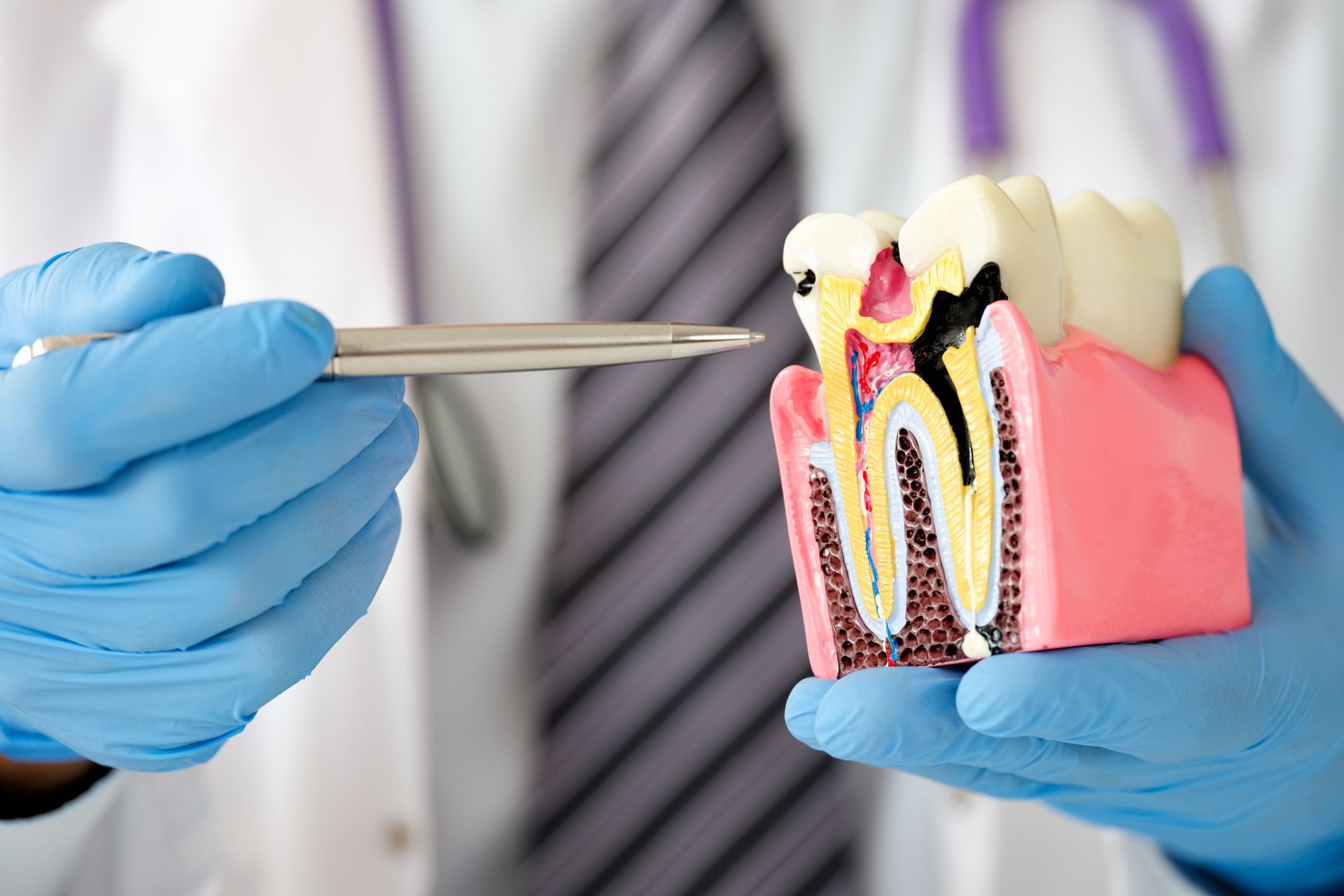The Risks of Neglecting a Cavity: Act Early with Dental Care

Introduction
Dental health, often overlooked, plays a pivotal role in our overall well-being. A radiant smile isn't just an aesthetic asset; it's an indicator of a healthy body. Our mouths serve as gateways to our internal systems, and issues therein can echo repercussions throughout our bodies. Neglecting oral care doesn't just jeopardize the health of our teeth and gums; it can impact digestion, speech, and even our confidence.
Cavities, commonly known as tooth decay, are one of the most prevalent dental issues people face worldwide. They begin as minuscule, inconspicuous damage to the tooth enamel caused by the acidic by-products of bacteria feeding on the food particles in our mouths. Left unchecked, these small erosions can evolve, digging deeper into the tooth, compromising its structure, and eventually leading to painful and more severe dental problems. Recognizing the early stages and understanding their development is the first step to prevention and timely intervention.
UNDERSTANDING CAVITIES

How Cavities Form
Our mouths are teeming with a multitude of bacteria, many of which are beneficial. However, some of these bacteria feed on the food particles and sugars that linger in our mouths post-consumption. As they feast, these bacteria produce acidic by-products that can erode the tooth's protective enamel. Poor oral hygiene exacerbates this, allowing a conducive environment for these bacteria to thrive, multiply, and continue their destructive activity.
The process of cavity formation is gradual. It starts as a tiny demineralized spot on the enamel due to the persistent acidic attacks. If this early stage of decay goes unnoticed or untreated, the erosion progresses, gradually deepening and widening. Over time, this can lead to a full-blown cavity, a perforation that breaches deeper layers of the tooth, making it vulnerable to infections and necessitating more intensive treatments.
Signs and Symptoms of Cavities
- Pain and sensitivity - A characteristic symptom of cavities is pain, especially when consuming hot, cold, or sweet foods and drinks. This sensitivity arises as the cavity breaches the protective enamel, exposing the more sensitive dentin beneath.
- Visible holes or dark spots on teeth - Visible manifestations of cavities can range from tiny white spots indicating early demineralization to evident holes or darkened areas on the affected tooth. These physical changes often indicate a progressed stage of decay, warranting immediate attention.
- Bad breath or an unpleasant taste - An often-overlooked symptom of cavities is persistent bad breath or an unpleasant taste in the mouth. This arises from the accumulation of bacteria and decaying food particles in the cavity, signifying not just tooth decay but a heightened risk of gum disease as well.
Why You Shouldn't Ignore a Cavity
From Bad to Worse
Ignoring a cavity is akin to turning a blind eye to a small ember that can ignite a larger fire. Left untreated, what begins as a superficial erosion can delve deeper into the tooth, eventually reaching the sensitive pulp and nerve tissues. Once these inner sanctums of the tooth are compromised, the risk of infections skyrockets. Such infections can journey down the root, potentially leading to painful dental abscesses. An abscess, a pocket of pus, can become a source of constant pain, swelling, and even systemic infections if not addressed promptly.
Potential for Complex Treatments
Addressing a cavity in its infancy usually requires a simple filling, a straightforward procedure that restores the tooth's integrity. However, as the cavity grows and inflicts more damage, treatments become more complex. A deep cavity that affects the tooth's nerve might necessitate a root canal, where the infected pulp is removed and the tooth is sealed. In extreme cases, if the tooth's structure is too compromised, an extraction might be the only viable solution. It's clear: the longer one waits, the more invasive and uncomfortable the required interventions become.
Financial Implications
Procrastination in dental care can lead to a heavy toll on one's wallet. Early-stage cavities that could have been addressed with cost-effective fillings evolve into conditions requiring expensive treatments like root canals, crowns, or even implants post-extraction. Moreover, the ancillary costs—like medications for infections, repeat visits, or potential treatments for complications—add up. Investing in timely dental care not only safeguards oral health but also proves financially prudent in the long run, preventing hefty bills stemming from complex procedures.
Benefits of Timely Dental Care
Prevention Over Cure
The age-old adage, "Prevention is better than cure," holds immense weight when it comes to dental health. Addressing dental issues in their nascent stages not only ensures minimal discomfort but also averts the need for intricate procedures. A timely dental check-up can spot potential problems, allowing for interventions that are both manageable and less invasive. By prioritizing regular dental care, we can nip potential issues in the bud, ensuring the longevity and health of our teeth and gums.

Safeguarding Overall Health
Often underestimated is the profound connection between our oral health and our body's overall well-being. Gum diseases, often linked to untreated cavities, can serve as gateways for bacteria to enter the bloodstream. This has been associated with a heightened risk for various systemic conditions like cardiovascular diseases, where bacteria can lead to arterial blockages, or exacerbate conditions like diabetes by impacting blood sugar control mechanisms. Moreover, conditions like oral infections can be particularly detrimental for individuals with compromised immune systems. In essence, safeguarding our oral health isn't just about preserving our smiles; it's a crucial step in maintaining our overall health and reducing the risk of broader complications.
Conclusion
Dental health matters. It's not just about having a nice smile; it's about keeping your whole body healthy. When you take care of small dental problems early on, you prevent bigger, more painful issues in the future. Good dental habits and regular check-ups can keep your teeth and gums in top shape for years to come.
However, we understand that the costs of dental treatments can sometimes be a barrier. Nobody should have to skip a dentist visit because of money worries. That's where Online Insurance Hub comes in. Our dental insurance plans are designed to help cover these costs, making it easier for you to get the care you need. Remember, investing in your dental health now can save you from bigger expenses and problems later on. Choose Online Insurance Hub and let us help you keep that healthy smile.




